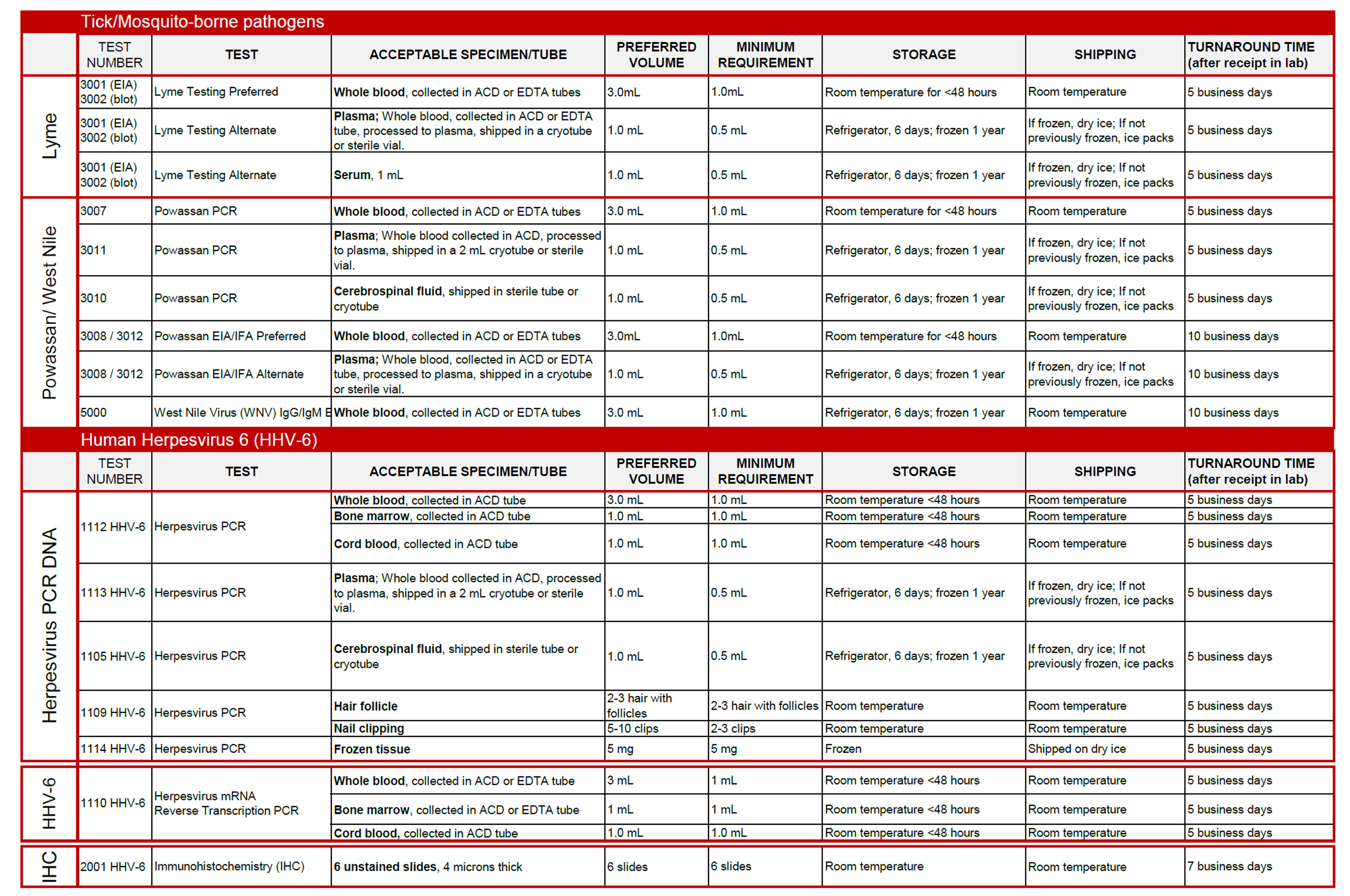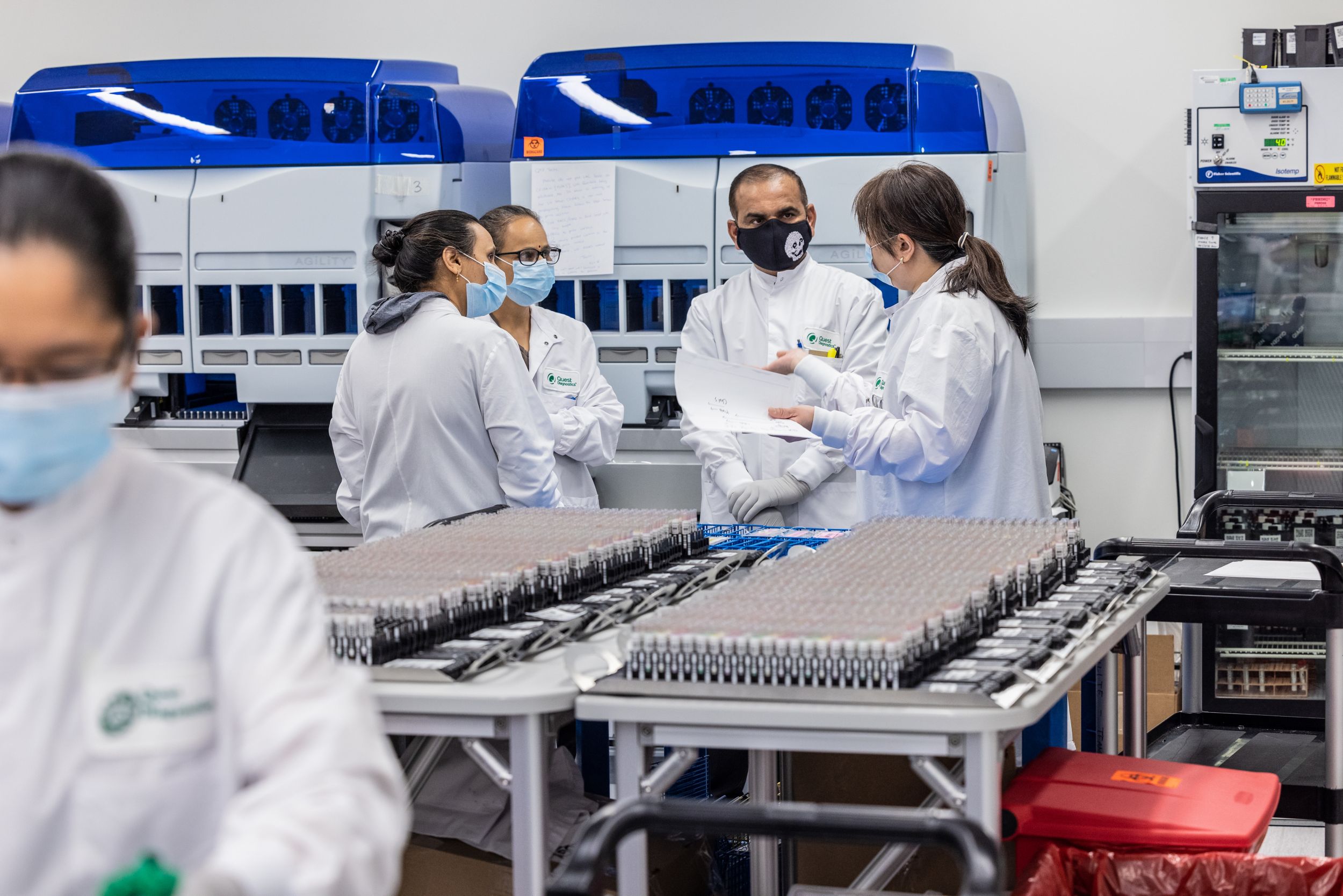Quest Diagnostics lab test menu offers a comprehensive range of diagnostic testing services, from routine blood work to highly specialized genetic and toxicology analyses. This menu caters to a diverse patient population, providing clinicians with crucial information for accurate diagnoses and effective treatment plans. Understanding the breadth of available tests, proper preparation procedures, and result interpretation is key to maximizing the value of these services.
The Quest Diagnostics lab test menu is organized into distinct categories to facilitate navigation. These categories include common blood tests, specialized testing areas (such as genetics, toxicology, and infectious disease), and various other diagnostic procedures. Each test is accompanied by detailed information on its purpose, preparation requirements, and interpretation of results, empowering both patients and healthcare providers. The company also provides multiple convenient methods for accessing test results, ensuring timely and efficient communication.
Quest Diagnostics Lab Test Menu
Quest Diagnostics offers a comprehensive menu of laboratory tests, serving patients, physicians, and healthcare systems nationwide. The breadth of their services spans routine screenings to highly specialized diagnostic procedures, playing a crucial role in preventative care, disease diagnosis, and treatment monitoring.
Quest Diagnostics Lab Test Menu Overview
The Quest Diagnostics lab test menu encompasses a vast array of diagnostic tests categorized for easy navigation. These categories assist both patients and healthcare professionals in selecting the appropriate tests for specific medical needs. The tests are designed to provide accurate and timely results to aid in informed decision-making regarding patient care.
| Test Category | Brief Description | Relevant Patient Populations |
|---|---|---|
| Routine Blood Tests | Commonly ordered tests assessing overall health, including complete blood count (CBC), metabolic panels, and lipid profiles. | General population, individuals undergoing routine checkups, patients with suspected medical conditions. |
| Urinalysis | Analysis of urine to detect infections, metabolic disorders, and kidney diseases. | Patients with suspected urinary tract infections, kidney problems, or diabetes. |
| Genetics Testing | Tests to identify genetic mutations associated with inherited diseases and predispositions. | Individuals with family history of genetic disorders, pregnant women, couples planning pregnancy. |
| Infectious Disease Testing | Detection of various infectious agents, including bacteria, viruses, and parasites. | Patients with suspected infections, individuals exposed to infectious diseases, those requiring pre-operative screening. |
Commonly Ordered Tests

Source: coppelabs.com
Understanding the purpose, preparation, and interpretation of common blood tests is crucial for both patients and healthcare providers. This section details ten frequently ordered tests, offering insights into their clinical significance.
- Complete Blood Count (CBC): Assesses various blood components; preparation involves fasting is usually not required; abnormal results may indicate anemia, infection, or leukemia.
- Potential implications of abnormal results: Anemia, infection, leukemia, bleeding disorders.
- Basic Metabolic Panel (BMP): Measures key electrolytes and kidney function; fasting is usually required; abnormal results may suggest kidney disease, diabetes, or electrolyte imbalances.
- Potential implications of abnormal results: Kidney disease, diabetes, electrolyte imbalances, dehydration.
- Comprehensive Metabolic Panel (CMP): Extends BMP to include liver function tests; fasting is usually required; abnormal results may indicate liver disease, kidney disease, or diabetes.
- Potential implications of abnormal results: Liver disease, kidney disease, diabetes, pancreatitis.
- Lipid Panel: Measures cholesterol and triglycerides; fasting is usually required; abnormal results may indicate increased risk of heart disease.
- Potential implications of abnormal results: Increased risk of heart disease, stroke, atherosclerosis.
- Thyroid Panel: Measures thyroid hormones; no specific preparation required; abnormal results may indicate hypothyroidism or hyperthyroidism.
- Potential implications of abnormal results: Hypothyroidism, hyperthyroidism, goiter.
- Glucose Test: Measures blood sugar levels; fasting is usually required; abnormal results may indicate diabetes or prediabetes.
- Potential implications of abnormal results: Diabetes, prediabetes, hypoglycemia.
- Hemoglobin A1c (HbA1c): Measures long-term blood sugar control; no specific preparation required; abnormal results may indicate diabetes or poor blood sugar control.
- Potential implications of abnormal results: Poorly controlled diabetes, risk of long-term complications.
- Prostate-Specific Antigen (PSA): Measures PSA levels in men; no specific preparation required; elevated levels may indicate prostate cancer or other prostate conditions.
- Potential implications of abnormal results: Prostate cancer, benign prostatic hyperplasia (BPH).
- C-Reactive Protein (CRP): Measures inflammation in the body; no specific preparation required; elevated levels may indicate infection or inflammation.
- Potential implications of abnormal results: Infection, inflammation, cardiovascular disease.
- Liver Function Tests (LFTs): Assess liver health; fasting is usually required; abnormal results may indicate liver damage or disease.
- Potential implications of abnormal results: Liver damage, hepatitis, cirrhosis, liver cancer.
Specialized Testing Areas
Quest Diagnostics offers specialized testing services that go beyond routine screenings, providing crucial information for complex medical conditions. These specialized areas require advanced techniques and interpretation.
| Testing Area | Types of Tests | Clinical Significance | Methodology | Applications |
|---|---|---|---|---|
| Genetics | Carrier screening, prenatal testing, newborn screening, predictive testing | Identifying genetic mutations associated with inherited diseases | DNA sequencing, microarray analysis, PCR | Family planning, disease risk assessment, personalized medicine |
| Toxicology | Drug screening, alcohol testing, heavy metal testing | Detecting the presence of drugs, alcohol, or toxins in the body | Immunoassay, gas chromatography-mass spectrometry (GC-MS) | Workplace drug testing, forensic investigations, medical evaluations |
| Infectious Disease | Bacterial cultures, viral load testing, antibody testing, PCR testing | Identifying and monitoring infectious agents | Culture methods, molecular assays, serological tests | Diagnosis and management of infections, disease surveillance |
Test Preparation and Procedures

Source: scene7.com
Proper preparation before a blood test is essential for accurate results. Following these guidelines ensures the test is performed correctly and efficiently.
Preparation for Common Blood Tests: Many blood tests require fasting for 8-12 hours before the test. Avoid strenuous exercise before the test. Inform your physician or phlebotomist about any medications you are taking.
Blood Draw Procedure:
- The phlebotomist will clean the area on your arm with an antiseptic.
- A tourniquet will be applied to your upper arm to make your veins more prominent.
- A needle will be inserted into a vein, and blood will be collected into tubes.
- The needle will be removed, and a bandage will be applied to the puncture site.
Potential Complications or Risks:
- Bleeding or bruising at the puncture site
- Fainting or lightheadedness
- Infection at the puncture site
- Hematoma (blood clot under the skin)
Test Result Interpretation and Reporting
Quest Diagnostics provides test results in a standardized report format. Understanding this format is essential for interpreting the results and their clinical significance.
Report Format: Reports typically include patient information, test names, results, reference ranges, and units of measurement. Abnormal results are often flagged for easy identification.
Reference Ranges: Reference ranges represent the expected values for a healthy population. Values outside this range may indicate a medical condition, but further investigation is often needed.
Sample Blood Test Report Interpretation (Hypothetical):
Let’s assume a hypothetical report showing a glucose level of 250 mg/dL (reference range: 70-100 mg/dL). This significantly elevated level strongly suggests hyperglycemia, which could indicate diabetes. Further testing would be required to confirm the diagnosis.
Accessing Test Results
Quest Diagnostics offers multiple methods for accessing test results, providing flexibility and convenience for patients.
- Online Portal: Provides secure access to results, often with additional information and educational resources. Requires registration and a username/password.
- Phone: Results may be available via phone, but this method might be limited depending on the test and patient privacy regulations.
- Mail: Results can be mailed to the patient or their physician. This method is typically slower than online access.
Cost and Insurance Coverage
The cost of Quest Diagnostics lab tests varies depending on the specific test(s) ordered and geographic location. Insurance coverage significantly impacts out-of-pocket expenses.
Factors Influencing Cost: The complexity of the test, the number of tests ordered, and the location of the testing facility all influence the cost.
Insurance Coverage: Most insurance plans cover some or all of the cost of medically necessary lab tests. However, co-pays, deductibles, and co-insurance may apply. Check with your insurance provider for specific coverage details.
Hypothetical Insurance Scenario: A patient with a high-deductible health plan might have to pay a significant portion of the cost of a comprehensive metabolic panel upfront, before their insurance coverage kicks in. However, a patient with a plan with lower deductibles and co-pays would have a much lower out-of-pocket expense.
Finding a Quest Diagnostics Location
Locating a Quest Diagnostics testing center is easy using their online tools or by contacting customer service.
Locating a Testing Center: Use the Quest Diagnostics website’s location finder to search by zip code or address. The website also provides details on the types of services offered at each location.
Quest Diagnostics’ extensive lab test menu offers a wide array of options for preventative care and diagnostic testing. For those in the Madison, Wisconsin area seeking affordable healthcare options, checking craigslist madison wis for potential deals on related services might be worthwhile. Ultimately, understanding the Quest Diagnostics lab test menu is crucial for informed healthcare decisions.
Types of Locations: Quest Diagnostics operates standalone laboratories and also has locations within hospitals and other healthcare facilities.
Scheduling an Appointment: Appointments can typically be scheduled online through the Quest Diagnostics website or by calling their customer service line. Walk-in services may also be available at some locations.
End of Discussion
Navigating the complexities of medical testing can be challenging, but understanding the Quest Diagnostics lab test menu empowers patients and healthcare professionals alike. From routine blood panels to specialized genetic analyses, Quest Diagnostics provides a comprehensive suite of services designed to aid in diagnosis and treatment. By utilizing the resources provided, including online portals and clear result reporting, patients can actively participate in their healthcare journey and achieve optimal outcomes.
The accessibility of testing locations and clear explanations of cost and insurance coverage further enhance the patient experience.
